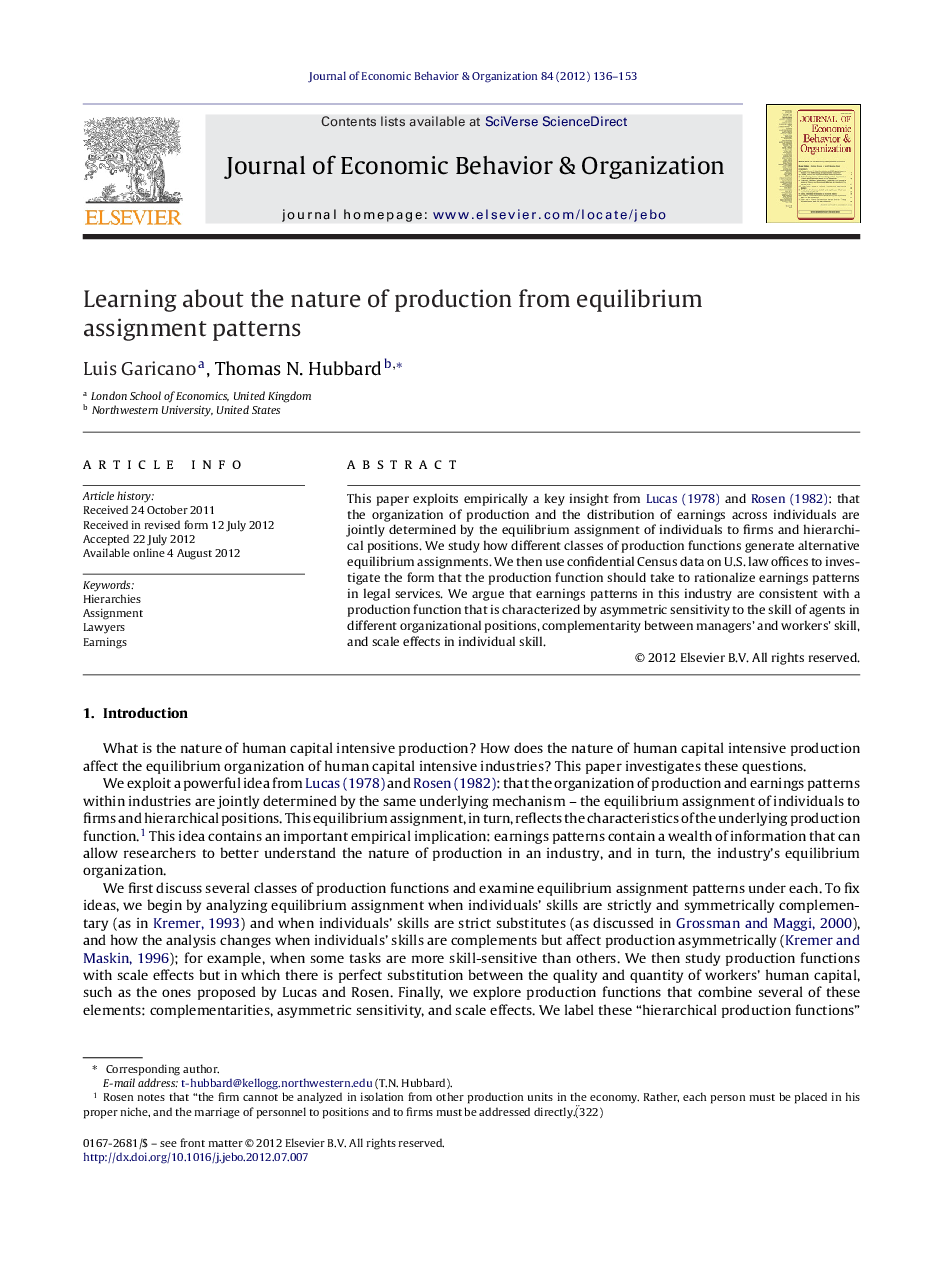| کد مقاله | کد نشریه | سال انتشار | مقاله انگلیسی | نسخه تمام متن |
|---|---|---|---|---|
| 883876 | 912358 | 2012 | 18 صفحه PDF | دانلود رایگان |

This paper exploits empirically a key insight from Lucas (1978) and Rosen (1982): that the organization of production and the distribution of earnings across individuals are jointly determined by the equilibrium assignment of individuals to firms and hierarchical positions. We study how different classes of production functions generate alternative equilibrium assignments. We then use confidential Census data on U.S. law offices to investigate the form that the production function should take to rationalize earnings patterns in legal services. We argue that earnings patterns in this industry are consistent with a production function that is characterized by asymmetric sensitivity to the skill of agents in different organizational positions, complementarity between managers’ and workers’ skill, and scale effects in individual skill.
► Equilibrium assignment determines organization and the earnings distribution.
► We summarize and extend the literature on equilibrium assignment and organization.
► We analyze how production functions generate different assignment patterns.
► We examine unique data on US lawyers.
► We infer production function characteristics from earnings patterns.
Journal: Journal of Economic Behavior & Organization - Volume 84, Issue 1, September 2012, Pages 136–153